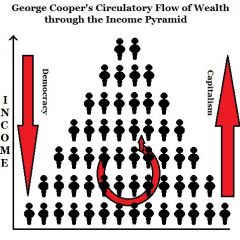Understanding the place of Muslim immigration into liberal democratic states must begin with the recognition that the Koran has no place for a democratic government. Also, one needs to realise that it is not the place for Western governments and liberal thinkers to provide a way for Muslims to accommodate themselves to a democratic system of government: this is the role that Muslim leaders must discover for themselves, or as if often the case, to reject!
It is natural for Muslims to reject liberal democracy. Islam seeks to impose norms of behaviour on all members of its community via rules and conditions. It is a theocratic rule-based system at its very heart. Democracy, on the other hand, reflects the thinking of both the elite and ordinary people in a democratic society. Some of those ideas are informed by religiously determined norms, whereas others reject those norms. It represents a untidy consensus of numerous disparate ways of thinking. This consensus is arrived at via argument and more importantly, experience.
Muslim Immigation
Yet, as Jennifer Oriel, The Australian 1/1/2018, writes, “Opposition to liberal democracy is imported into the West by mass immigration programs that do not require adherence to Western values as a condition of citizenship. During the past decade, numerous surveys have found that between 20 and 50 per cent of Muslims living in Western countries want to be governed by sharia.”
She goes on to say, “The Pew Research Centre found that after a decade of US and coalition military action against terrorism in Afghanistan, 99 per cent of Muslims favoured making sharia the official law in their country. In Iraq, the figure was 91 per cent.”
Sharia primarily represents rules based on the 7th century Koran as interpreted by Muslim scholars in the years after that. Since Muslims believe that the Koran was dictated to Muhummad by Angel Gabriel, it can appear to modern non-Muslims that Islam is stuck in a prison of 7th century ideas. Part of this framework is sharia.
One could say that sharia is incompatible with a liberal democratic system of government, yet to ask all Muslims seeking to immigrate into a liberal democratic country to formally reject sharia is to effectively ban Muslim immigration.
Legal Reforms
Muslims seeking to immigrate into a liberal democratic society, and those who wish to bring in relatives via a family-reunion programme, can be required to declare their allegiance to certain fundamentals of such a society. These should include:
- Commitment to the rule of law, with these laws being established by democratically elected governments.
- Tolerance towards people of other faiths, or of no faith, and towards those who change their core belief system.
- Willingness to pay taxes as determined by democratically elected governments.
In addition, the family-reunion programme could be changed so that it is only open to those sponsors who naturally are, or who have formally become, citizens of the host nation.
